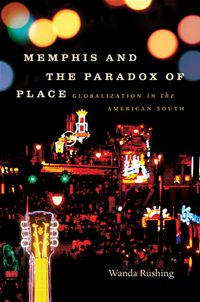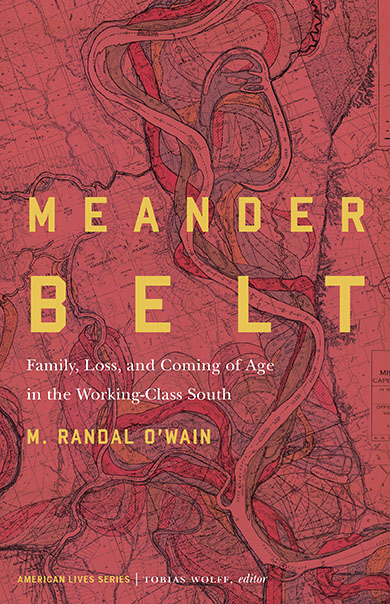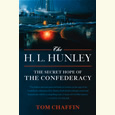Memphis, A City of Timelessness and Transition
New book considers the effects of globalization on a great Southern city … and vice versa
Among Tennessee cities, Memphis is unique. If Nashville, Knoxville and Chattanooga are associated with the Appalachian Mountains, Memphis represents the northernmost port of the Mississippi Delta. Leaving the city’s I-240 loop and heading down Highway 61, there’s no mistaking the change in atmosphere on the “Blues Highway” that runs through the heart of the Delta flatland. In a new book Memphis and the Paradox of Place, Wanda Rushing explores the cultural, geographic, and economic influences of a city that holds a unique place in Tennessee and the world.
As its title suggests, Memphis and the Paradox of Place avoids painting an oversimplified picture. For Rushing, Memphis — home to diverse, innovative institutions such as FedEx, St. Jude Children’s Hospital, Stax Records, and Graceland — is influential far beyond the boundaries of the Delta and the borders of Tennessee. On the other hand, she acknowledges that provincial politics and outdated racial, sexual, and economic stereotypes have tarnished the city’s past and hamstrung its promising future.
To gain a handle on such a complex subject, Rushing employs an equally complex strategy, the literary-narrative case study, which borrows from literary and sociological forms of analysis. Memphis, she maintains, has both informed and resisted the processes of globalization. To demonstrate this apparent contradiction, Rushing weaves together the area’s history, economics, art, architecture, geography, popular culture, storytelling, and imagination to tell the tale of a place, a word she defines as “a site of imagination, constructed through symbolic work.” Rather than being a spot on the map, place is a construct of the mind.
 Most discussions of globalization, she says, focus on its homogenizing influence — its ability to create sameness. According to this view, global influences are inauthentic, rubbing out local traditions and innovation. Opposing theories claim the opposite is true: it’s local culture that ultimately transforms the global. A third perspective, which Rushing advocates, holds that “each ‘place’ is uniquely situated in networks of global relations and cultural flows and embedded in its own accumulated local history.” In other words, both change and resistance to change are two-way streets.
Most discussions of globalization, she says, focus on its homogenizing influence — its ability to create sameness. According to this view, global influences are inauthentic, rubbing out local traditions and innovation. Opposing theories claim the opposite is true: it’s local culture that ultimately transforms the global. A third perspective, which Rushing advocates, holds that “each ‘place’ is uniquely situated in networks of global relations and cultural flows and embedded in its own accumulated local history.” In other words, both change and resistance to change are two-way streets.
Memphis music is one example Rushing uses to support her claim. Memphis-based artists like Elvis Presley, B.B. King, and Johnny Cash may have captured the larger public’s imagination, but local leaders, who saw them as low-class and coarse, once reviled them. In recent memory, the city even had the legendary Beale Street music district slated for demolition. But times have changed. Due to increased global awareness of the importance of Memphis music, local leaders now brag about the local culture, including its African-American contributors. As a result, Memphis’s traditional music scene is the cornerstone of its tourist economy. Of course, the fact that once-insurgent Memphis music now has official sanction calls for yet another re-imagining of its position in local and global culture.
Memphis and the Paradox of Place is an academic work — Rushing is associate professor of sociology at the University of Memphis — and as such is not designed for easy reading. Still, its crisp prose and scintillating historical references make the effort worthwhile. Most importantly, Rushing’s nuanced investigation has real-world implications for Memphis’s future — and for other cities, like New Orleans, that seem in a perpetual state of limbo. It remains to be seen whether those in charge of the city’s purse strings will take heed.


